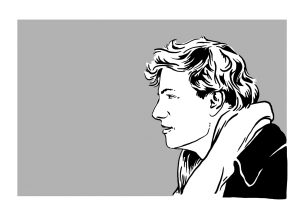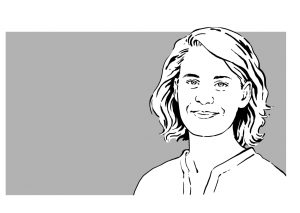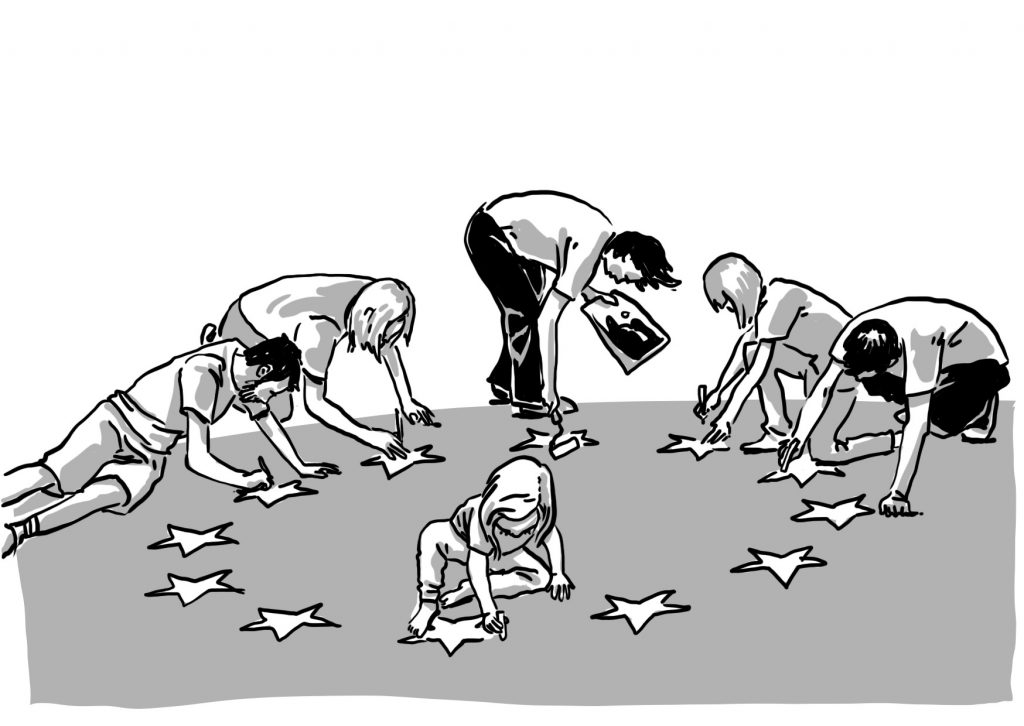As a response to the return of divisive and nationalist politics across Europe, dual degree student Damian Boeselager decided to co-found the young, pro-European party Vox Europe. In this interview, The Governance Post’s Editor Donata Schilling sat down with him to talk about Vox’s message and their plans for the future.
TGP: What is Vox about? What made you decide to start a political movement instead of becoming part of an existing party?
Vox is a European grassroots movement that aims at revolutionizing the way politics is done. It aims at being a political counterforce to the closed-minded, reactionary politics that are currently on the rise across the continent. It works towards a united and functioning European Union, and it tries to give a political home to the many voices of our generation and beyond who have been disenfranchised with traditional parties.
I joined Vox because I saw that our continent as a whole is moving in a direction that I did not like; because I hope that we can send a strong signal to traditional parties and to citizens that we feel connected as Europeans rather than separated. I joined because I believe we are at a turning point in history and we need to make sure it goes right. Joining a traditional party was an option, but like many, I felt that ideological battles without impact, hierarchical structures and loyalties made that unattractive. In the end, we offer another (and in my view better) option, but I am always happy when I hear that people join parties in general.
TGP: How many members (active and passive) do you have so far? How do you reach potential members?
We are around 500 members across 14 countries and have around 1000 newsletter subscribers. It’s a lot word of mouth, but more and more, people sign up because they have read about us or they see our events on Facebook. Every month we have an event in our cities, last time 30 city teams met at the same time across the continent.
TGP: This is how you describe yourselves on your website: “We are a team of young dreamers. We are professionals, experts, students, but above all a group of people extraordinarily passionate about our countries and our continent.” Do you feel that such a group can represent all Europeans, especially considering criticism towards European institutions that they are too elitist and removed from ordinary Europeans?
No. We could never represent all Europeans and that is not our aim. No party can do that. However, we do believe that enough people out there want to see Europe unite, want to see visionary and optimistic politics happen again.
But to your underlying question: Are we too elitist? Diversity and representation are both ongoing focus themes in our movement. There are a few things we learned so far, and we are always happy with new ideas. Here we go: First, we listen. To everyone. Our city teams go to the streets and ask people in listening tours what they are concerned about. This helps us mitigate the danger of circling around our own sphere and to understand what is really relevant. Second, despite all our social media activities, we focus on face-to-face interaction. We are building local teams for a reason. Real dialogue and understanding happen in person, and that is at the core of what we are doing. And third, we actively reach out and engage people from all backgrounds as much as possible.
TGP: You set five challenges your local teams use as the basis for each country–specific program (Smart State, Economic Renaissance, Social Equality, Global Balance, Citizen Empowerment), and one common challenge for the European program (EU Reform). How do you deal with potentially differing or even conflicting interpretations of these quite broad challenges? What are the coordination mechanisms?
We are still very young and our teams are currently in the process of writing our program and shaping our political identity. The way we approached it was, that we first defined these rather broad categories and formed teams around them. Over the last months, almost every major topic has been assigned to one of the teams. Then the teams wrote around 100 pages of goals and policies around these topics. We discussed them in our first general assembly around one month ago, and now, we are trying to condense the work to 10-20 flagship topics, so that people can easily see what we really care about. For each of these topics we propose a very tangible policy, such that it is clear where we are heading. But again, we are young and we want to do this correctly, so it takes time. And everyone who joins is invited to help!
TGP: What are Vox’s plans for the next years? You want to run for the European elections in 2019. How detailed are your plans until then?
The first major milestone, as you said, is the European Parliamentary election in Spring/Summer 2019. Until then, we need to grow across the continent, train our candidates, raise funds, pull off an amazing and fascinating campaign (likely focused on increasing voter turnout) and win around 25 seats in the European Parliament. We have a time plan for each of these steps.
All of this will only work if we find people who like us feel it is time to take up responsibility rather than letting it all happen. It is time for ownership, for accepting that we are part of a society and that we have a role in it, that we can shape it and change it.
 Damian Boeselager is a class of 2019 Master of Public Policy Dual Degree candidate (Columbia University & Hertie School of Governance). He studied Philosophy & Economics in Bayreuth and New York, where he focused on the Philosophy of Psychology and Game Theory. After touring Europe for a 3-month journalistic trip and the typical internship Odyssey, Damian started working at a consulting firm. He is a founding member and Vice President of Vox Europe.
Damian Boeselager is a class of 2019 Master of Public Policy Dual Degree candidate (Columbia University & Hertie School of Governance). He studied Philosophy & Economics in Bayreuth and New York, where he focused on the Philosophy of Psychology and Game Theory. After touring Europe for a 3-month journalistic trip and the typical internship Odyssey, Damian started working at a consulting firm. He is a founding member and Vice President of Vox Europe.
 Donata Schilling is a class of 2019 MPP candidate at the Hertie School of Governance. She holds a BA in Philosophy & Economics from the University of Bayreuth, including a semester abroad at Tel Aviv University. During and after her studies, she interned at a think tank for Political Economics and a NGO providing higher education to refugees. She is interested in migration and education policy.
Donata Schilling is a class of 2019 MPP candidate at the Hertie School of Governance. She holds a BA in Philosophy & Economics from the University of Bayreuth, including a semester abroad at Tel Aviv University. During and after her studies, she interned at a think tank for Political Economics and a NGO providing higher education to refugees. She is interested in migration and education policy.
